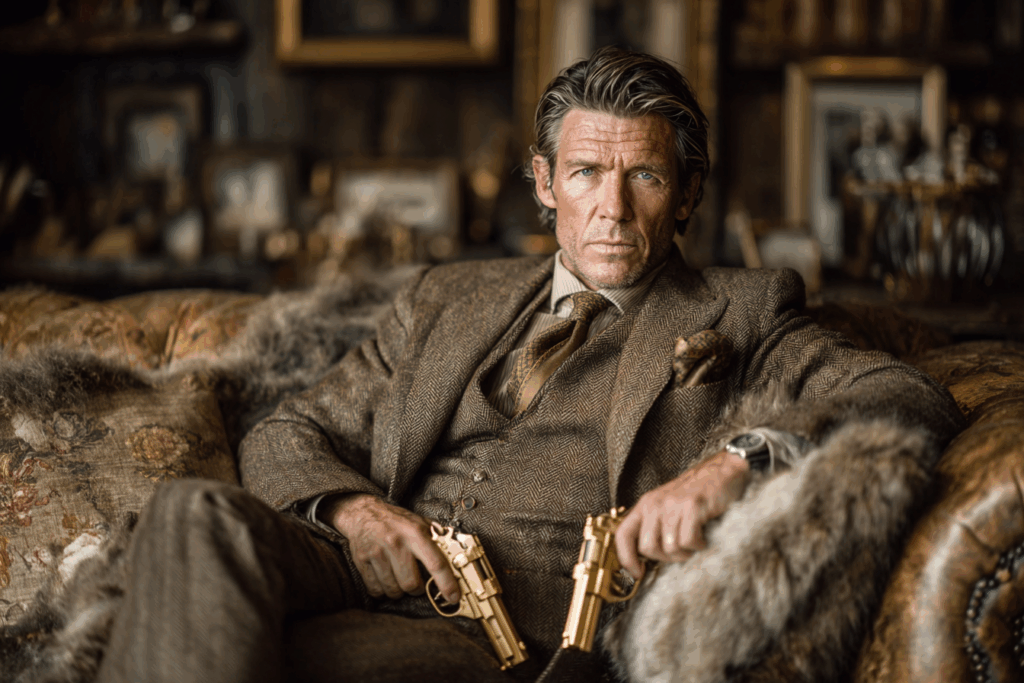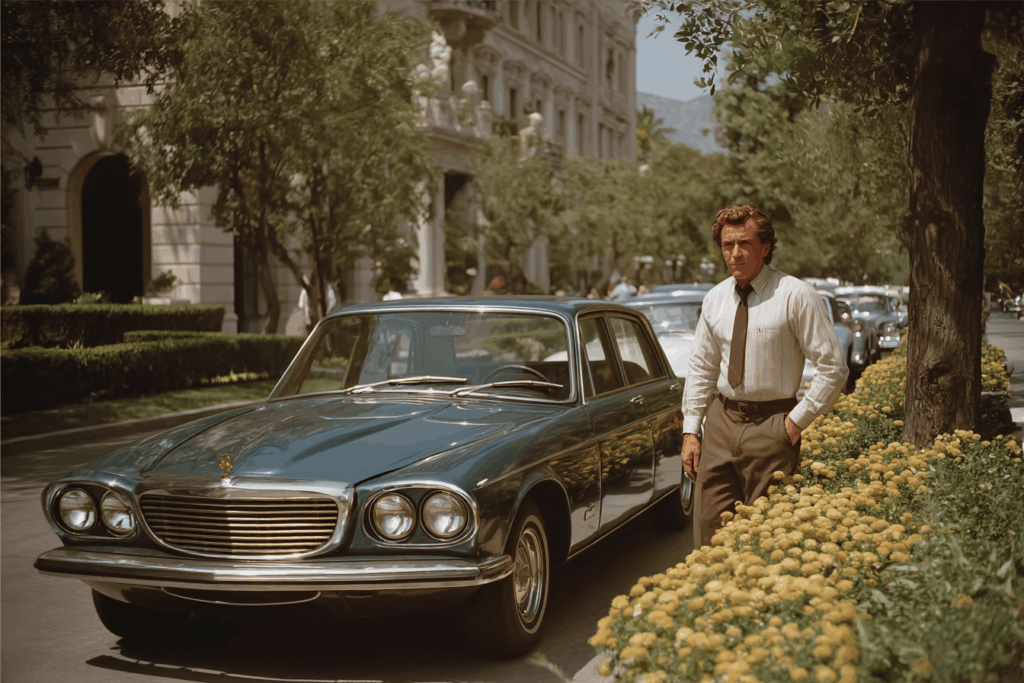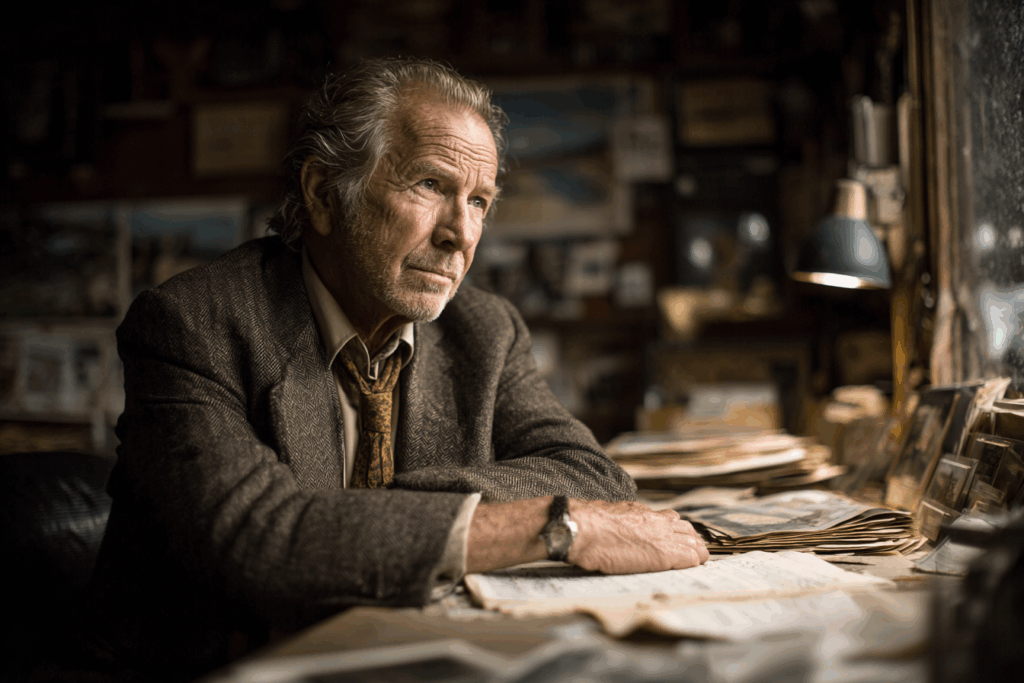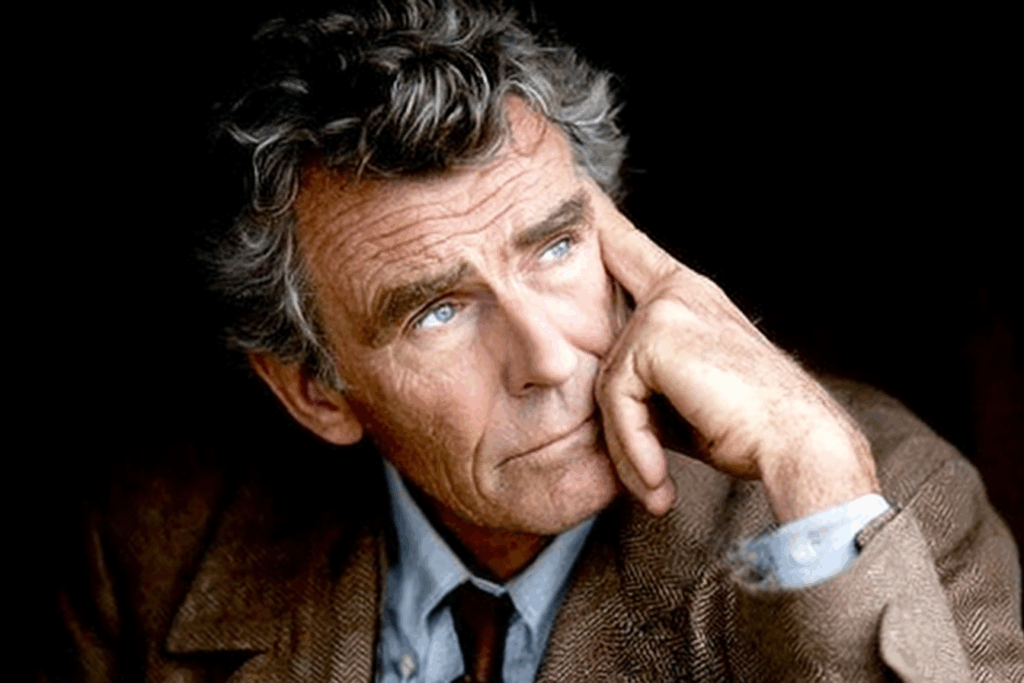How to Murder a Movie III

The Man with the Golden Revolvers
I show him the note. “Have you seen this before?”
“No, what is it?”
“The script.”
“I have nothing to do with that. That’s not my department.”
“What are you responsible for?”
“I’m the creative department. I solve problems.”
“How do you solve problems? With your two gold-plated revolvers? With a professional killer?”
“With money,” he says in his deep, dark voice.
“Money makes everything easy. Everyone is for sale. Everyone in this city.
For money, most people here would even sell their souls, if they still had one. That’s how it works here.
If you need a new script, you buy a writer.
If you have trouble with the director, you buy a new one.
Actors who aren’t right for the role are replaced.
You see, with money, I can solve any problem.”
“And that works?”
“Of course,” he says, leaning back comfortably.
“May I remind you that a murder has taken place here.”
“Oh, yes,” he mumbles, “I had already forgotten that.”
“Is there anyone you suspect? Did anyone behave strangely?”
“This is Hollywood,” he replies, “everyone here is strange. Although, yes, there is someone who is really strange. Downright disturbed, mentally ill, a real nutcase.”
“Who do you mean?”
“Our author. You should talk to him.”

The author
Sitting in front of me is an unassuming, small, modest man. He has a strange haircut and old-fashioned glasses.
I hold up the small piece of paper and show it to the writer.
“This piece of paper. What is it?”
“It’s the story,” he replies.
“Just this little piece of paper?”
“There was no money for more. They’d already spent so much on the script.”
“I don’t understand.”
“The film is based on a successful novel. First, they bought the rights to the book. Then there was a script proposal, followed by a rough draft and 14 revisions. Then the director argued with the author. Then the author was fired.”
“I thought you were the author.”
“I’m the second author. They had already started shooting.”
“Without a finished script?”
“There were a few pages that were reshuffled every day. The director then simply filmed the first three pages. Every day.”
“How can this work?
“It works great. You know, it doesn’t really matter what they film or in what order. They edit the film together later so that everything makes sense.”
“And what was your job?”
“I came to the set every day and wrote a few lines of dialogue, which the assistant director then burned.”
“I can’t imagine how that works in practice.”
“After a month, they ran out of script. They asked me and I wrote these notes during every coffee break, which was enough to last another two days of shooting. It was an action movie, you understand. There’s not that much talking.”
“What happened then?”
“Then they fired me. On a Thursday. On Monday, they rehired me at double the price.
I continued to write my dialogue, and the assistant director burned it again. Three days later, they fired me for good. I got a call from the assistant’s assistant.”
“Hmm, so you certainly harbor a grudge against the film company. That makes you our prime suspect.”
“Why a grudge? It was the best job I’ve had in two years.”
“I see,” I say, dejected.
“Is there anyone you suspect?”
“Not really. But if anyone knows what really happened here, it’s Eduardo.”
“Who is Eduardo?” I ask.
“The big boss.”
“And where can I find him?”
“Today is Tuesday. So he’s either at the golf course, on his yacht, or at his horse stables.”
“What does he do for a living? How did he get so rich?”
“No one knows,” replied the author.

At the golf course
With screeching tires, I pull up in front of the “Rich and Beautiful” golf course. An immaculate white clubhouse, in front of it a parking lot with luxury cars in the highest price ranges. I park my dented and dusty car right next to a red Ferrari with gold-plated exhaust pipes.
In the entrance area, I am intercepted by a uniformed employee.
“Are you a member?”
“No.”
“Are you rich?”
“No.”
“Are you beautiful?”
“No.”
“Are you at least famous?”
“No.”
“Then I’m afraid I can’t let you in. You’re not allowed to be here.”
“I’m an inspector,” I reply, “I’m allowed to.”
My cameraman gives me a thumbs up. Once again, I’ve used my most famous line. A short time later, I found Eduardo. A large, heavy man in a white suit. He was just preparing his tee shot on the seventh hole.
I introduced myself and told him what it was about.
“A movie murder inspector? Listen, I have nothing to do with this whole thing. I have a clean slate, as you can see from my white suit. Besides, I don’t have time for you today, I have to finish playing the 18 holes. “
He positions the golf ball, glances briefly at the target flag, and hits the ball with a colossal tee shot. The golf ball takes an impressive curve and lands in the middle of the green.
”Very good,“ he says, tossing the club back into his golf bag. ”A good shot.” He scribbles a number on his golf scorecard.
“On to the next hole.”
“Wait a minute,” I ask him, “you’re not going to finish this hole?”
He looks at me with pity.
“You don’t know much about golf, do you? My best shot is the tee shot, I practice it every day. All the effort later on, I don’t enjoy that. I want to have a good tee shot and that’s it. The rest is just statistics. You have to think big in life, then you’ll achieve something. Speed, that’s the key to success.“
”I can’t let you go,“ I say, ”I have to solve a murder case. You’re one of the main suspects. “
”I don’t have time for this nonsense. Murder? Impossible, it wasn’t me. And I can prove it to you.“
”Prove it.“
”Of course I could have killed the film, I didn’t care about it, you understand. For me, it’s just a tax write-off. But the point is, I don’t have time for murder. Not an hour, not a minute. I’m always on the job. Murder would be a complete waste of time for me.“
He grabs his golf trolley, waves to me again, and then continues on to the next hole.
”Perfect,“ I say, ”a perfect exit. We don’t even need to edit that together.”
Then the music starts and a commercial break follows.

Back at police headquarters
More than 30 minutes of airtime have already passed. I’m back at police headquarters.
“I think it’s time to interview a real expert,” I say to my cameraman.
“You mean the real police officer on desk duty? You mean Ted?“
”No, ChatGPT.”
I enter all the information into the computer. They shoot it in several takes to make it look like a lot of work. Less than five seconds later, the computer has found the right answer.
I print out the result and look directly into the camera with a dramatic expression on my face.
“It’s time to inform the chief. Only he can give us the go-ahead for this plan.”
The chief’s office is right next door, on the same set, and after a few steps I’m standing right in front of his office door.
‘Chief’ is written in large letters on the frosted glass pane. No one knows his real name; we all just call him “Chief.” Rumor has it that his character was only introduced at the end of the first season and production was pressed for time. “Chief” was all they had, and to be honest, it hasn’t bothered anyone so far.
I knock and enter his office.
“How’s the murder case going?” he asks.
“Not good. There are too many suspects who could be the perpetrator. And I only have my weekly 45 minutes to solve this case.”
“Listen,” says the Chief, “we could also make it a two-parter. Then you’d have until next week to solve the case.”
“That’s one possibility. But I’m more in favor of a spectacular ending.”
I slide the note with my solution over to him.
He glances at it. “You can’t do that! Impossible! Just think of the cost! It’s also logistically unfeasible. It’s impossible!”
“It will be possible, Chief. The perfect plan, the perfect cliffhanger. I’m sure that this way our viewers will stay on our channel even during the last commercial break.“
” It’s on your head, Garrett,” growls the chief, “and now get on with the commercials.”
“And cut,” calls the cameraman. “I’ve got it all in the can!”
(A commercial break. Dramatic music.)
